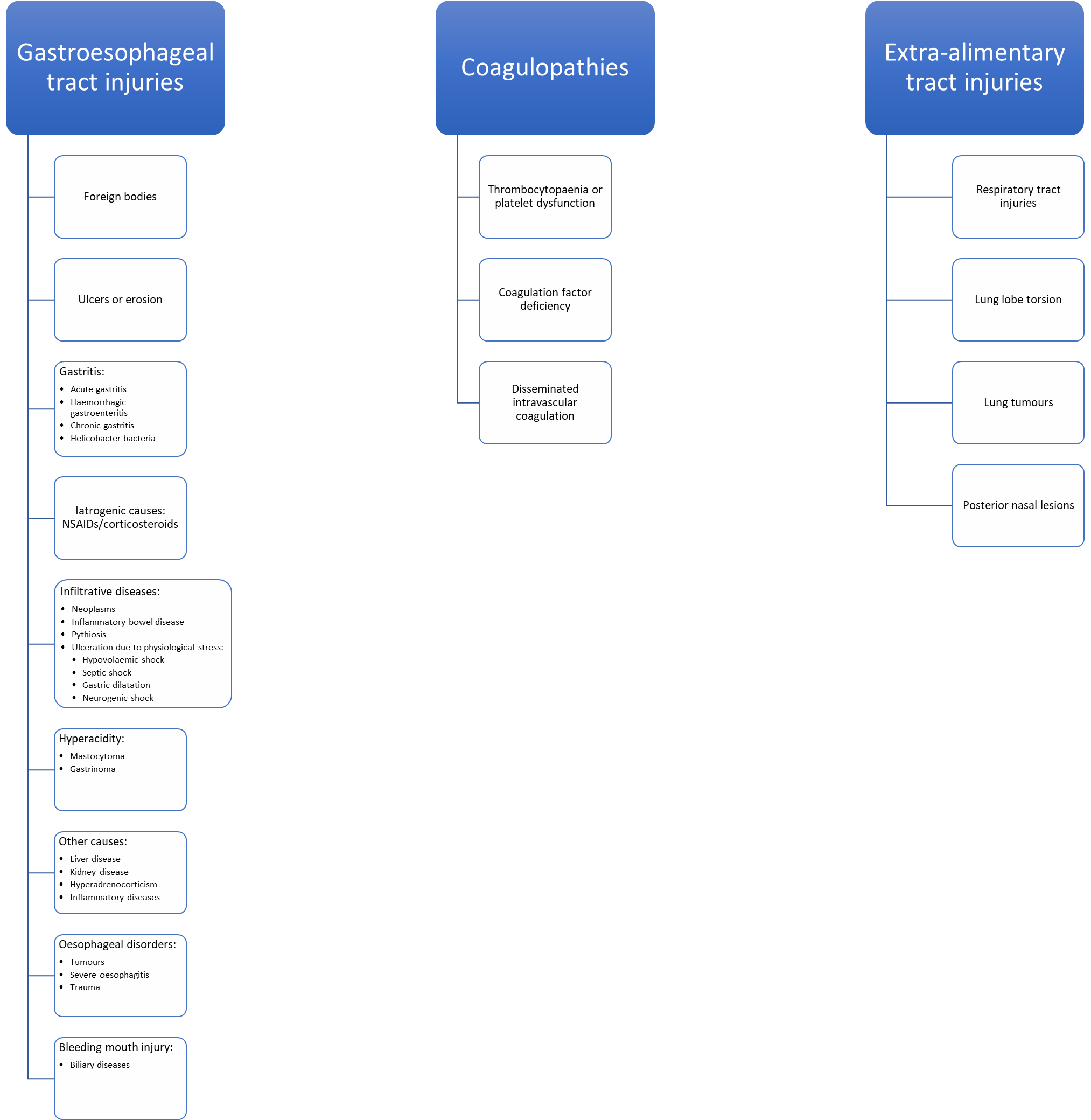Vomiting blood in dogs: what are the possible causes?
Vomiting blood in dogs may be caused by different apparatuses and systems:
- Gastroesophageal tract injuries (the most common).
- Coagulopathies.
- Extra-alimentary tract injuries.
In illnesses where blood reaches the stomach and is then vomited up, it may appear digested or partially digested (“coffee grounds”). Here we shall review each of the diseases that may cause dogs to vomit with blood.

Gastrooesophageal or alimentary tract injuries
These are the main causes of vomiting blood in dogs and should therefore be ruled out first. An endoscopy is both a useful and essential technique for an accurate diagnosis.
- Foreign bodies. As we know, dogs have a habit of swallowing all kinds of objects, and may also be incorrectly fed with bones and scraps that splinter and damage the mucous membranes. A thorough inspection of the gastroesophageal tract is necessary to rule out the presence of any foreign bodies.
- Gastrointestinal tract ulcers or erosion. The foreign body may no longer be found because it has been expelled or passed into the intestinal tract, although it may have left a bleeding ulcer or erosion. In this case, the extent of the injury must be assessed.
- Gastritis
- Acute gastritis, which is the most common cause.
- Haemorrhagic gastroenteritis.
- Chronic gastritis
- Helicobacter disease(associated with gastritis, peptic ulcers and gastric neoplasms).
- Iatrogenic causes.
-
As a result of using NSAIDs and corticosteroids. Prolonged or intensive use of nonsteroidal anti-inflammatory drugs can cause gastritis and peptic ulcers, while corticosteroids can interfere with the healing and repair process in the gastric mucosa.
- Infiltrative diseases
- Neoplasms
- Inflammatory bowel disease
- Pythiosis. Infection by the Pythium insidiosum fungus, which only occurs in tropical and subtropical regions.
- Ulceration due to physiological stress:
- Hypovolaemic shock
- Septic shock
- Gastric dilatation
- Neurogenic shock
- Hyperacidity
- Mastocytoma. This is one of the most common skin cancers in dogs. Mastocytomas release histamine, resulting in stomach hyperacidity.
- Gastrinoma (rare)
- Other causes
- Liver disease
- Kidney disease
- Hypoadrenocorticism
- Inflammatory diseases
- Oesophageal disorders
- Tumours
- Severe oesophagitis
- Oesophageal trauma
- Bleeding mouth injury
- Gallbladder disease (rarely produces haematemesis)
In the causes of vomiting blood in dogs associated with the gastrointestinal tract, a diet specially formulated for gastrointestinal care, prevention and recovery, such as Advance® Veterinary Diets Gastroenteric and Gastroenteric Low Fat are excellent therapeutic adjuvants. The nutritional supplement Advance® GastroForte also helps curb the processes involved in diarrhoea.
You can also download our Gastroenteric Research Report for more information.
Coagulopathies
- Thrombocytopaenia or platelet dysfunction. In this case, infections, parasitosis, spinal cord disorders and other possible causes of thrombocytopaenia must be ruled out.
- Coagulation factor deficiency
- Disseminated intravascular coagulation
Extra-alimentary tract injuries
- Respiratory tract injuries
- Lung lobe torsion
- Lung tumours
- Posterior nasal lesions
Differential diagnosis flowchart for vomiting blood in dogs:

